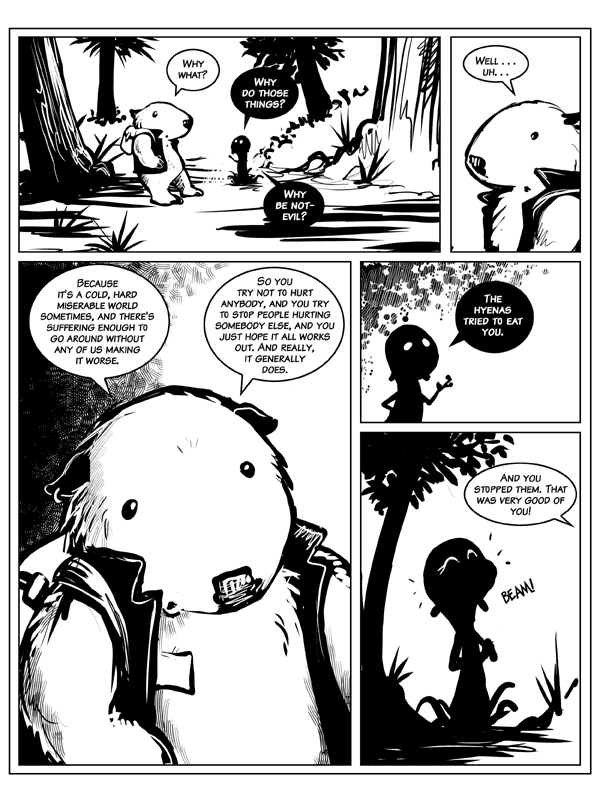Evening of Men and Women in the Workforce
Well, I saw that Alexandra Funk made a post linking this article, and I wanted to think about it for a bit. The article is about how the ration of women to men in the work force is starting to even out more due to the recession.
Really, I’m mostly interested in the assumptions about who does what work, and how that’s being challenged (or not) in the article. The idea that men are always the ones earning money in a (heterosexual) relationship, long in question, was further challenged in this article; for those who didn’t read it, it says that because the jobs traditionally held by men are less stable in a recession, they tend to be the ones put out of work. Essentially, it’s not that the number of women in the workforce is climbing, but rather that the number of men is decreasing. Thus, women in relationships often end up holding on to their jobs and earning money while the men continue to look for work.
Which, the article claims, they almost always do; it says that men who are out of work rarely increase the amount of time they spend doing domestic work such as taking care of children, instead choosing to search for jobs. Women, on the other hand, were said to double the amount of time they spent on domestic duties. No reason was provided for this discrepancy.
What I was really interested in, though, were two scenarios that weren’t really addressed at all in the article: one in which men are the primary caretakers, and another in which women hold high-paying jobs. It seemed to me that men were simply not regarded as being primarily responsible for taking care of children, and women were not regarded as having jobs that paid well. Maybe these scenarios aren’t common. I don’t know, I haven’t researched them. But the assumption (societal, not necessarily made by the article) seems to be that men are better at being “bread-winners” than women, or women are better at being “caretakers” than men, or both.
This ties back to one of the arguments that seems to come up frequently in this class: doing what is better for “women” as a group, or doing what is personally beneficial or necessary. Take as example a newly married couple with no money to speak of. They plan on having a child. Who should care for that child, and who should work?
If the couple decides to do one or the other (one parent works, the other takes care of the child), then they have to pick who works. In a society where women make (according to our article) 80 cents to every male-earned dollar, it simply seems financially practical for the man to work more, to maximize the amont of money that is earned. So more men work. And maybe the woman DOES work, but then, maybe she doesn’t. The article makes it seem like for some women, it’s ok to not work, but that the man has to work, or to be looking for a job.
Doesn’t this seem a bit self-perpetuating? Men keep working and keep making more money. If a man continues to work, then his skill set increases, making him more valuable. Fewer women appear in skilled fields, so that when they DO appear, they are regarded with a bit of suspicion (and 80% of a paycheck). Women continue to be seen as less valuable than men.
And just like that I’ve reduced it to the same really painful question we’ve been asking for the last few weeks: What’s an individual to do? Do you try to flaunt the system so that you can maybe pursue a career, make money, develop something worthwhile in your field of interest? Or do you not risk it because it’s personally dangerous, and becaus in practice, it’s your son who might not get to go to college if you and your husband can’t make enough money between you? I’m going to keep trying to deal with these questions, but they always put me in something of a contemplative mood.
Comments are closed.

Ugh. An issue near and dear to my heart. You might be interested in reading around a bit. There’s the classic “Second Shift” that discusses how working women end up with two jobs. It’s about 20 years old I think. I’m currently reading Opting Out, a book that researches women who’ve left high-paying jobs to take care of children. And on deck is The Feminine Mistake by Leslie Bennetts, a book that argues women are hurting themselves if they don’t work.
What it boils down to, imho, is a lack of truly family friendly policies and attitudes at work. It’s a buttload of work to manage a household with children and yes, men should do more in that regard and women should ask them to (a problem alluded to by this article (http://parenting.blogs.nytimes.com/2009/01/29/mad-at-dad/) and further addressed in this one (http://parenting.blogs.nytimes.com/2009/02/02/parents-need-help/)). But workplaces need to be places where part-time work is available and that people aren’t penalized for working less for a while.
And yes, the cycle perpetuates itself. And I think people are aware of it, but unable to change it. I could go on, but suffice it to say I’ve thought about this a lot and it hits pretty close to home.